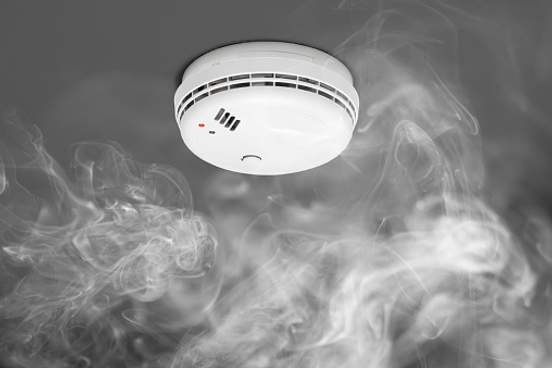
Cacography
Definition:
bad handwriting
Degree of Usefulness:
Pretty useful. Also, pretty evocative.
An Example:
Nor do I correct much of his Cacography, except in some Proper Names, and his Spanish, which he strangely mangles.
— J. Morgan, Phonix Britannicus, 1731

Acersecomicke
Definition:
“one whose hair was never cut”
(Henry Cockeram, English Dictionarie, 1623)
Degree of Usefulness:
This curious word is rarely, if ever, found in natural use. It appeared occasionally in 17th-century dictionaries, largely disappeared for a few hundred years, and then reappeared in the 20th century in books of trivia or writing about 17th-century lexicography. That's history's way of saying: useless.

Solivagant
Definition:
rambling alone : marked by solitary wandering
Degree of Usefulness:
Almost too useful, honestly. At least for us dictionary folk.
An Example:
Long years had wept by rock and hill and glade,
To fields of asphodel, was seen no more
Solivagant, upon the Attic shore.
— New Statesman and Nation (London, Eng.), 11 Nov. 1944

Filipendulous
Definition:
suspended by or strung upon a thread
Degree of Usefulness:
Not an everyday word, but a good one to have in your back pocket.
An Example:
Filipendulous tubers are attached to the parent plant by underground runners, or cords, which spring not from the roots but the lower part of the stem.
— Anthony Todd Thomson, Lectures on the Elements of Botany, 1822

Flingee
Definition:
"one at whom anything is flung"
(Oxford English Dictionary, 2nd Ed., 1989)
Degree of Usefulness:
If you find yourself needing it often, maybe it's time to rethink some things.
An Example:
Moments later, someone was sweeping around left end, following his spindly blockers, dodging would-be tacklers until a mass of arms surrounded him, latched on and flung him into the mush. Flinger or flingee, this was heaven.
— Neil Chethik, Detroit Free Press, 18 Jan. 1994

Jentacular
Definition:
"pertaining to breakfast"
(Webster’s New International Dictionary, 2nd Ed., 1934)
Degree of Usefulness:
Some might say it's the most important word of the day.
An Example:
…spending the remaining hours of every day in reading, or taking exercise by way of fitting himself for his labours, or, to use his own strangely-invented phraseology, taking his ante-jentacular and post-prandial walks, to prepare himself for his task of codification.
— Carlisle Journal (Carlisle, Eng.), 2 May 1840

Deipnosophist
Definition:
a person skilled in table talk
Degree of Usefulness:
Basically, this is a four-syllable word for "great dinner party guest," which could very well be a great dinner party topic.
An Example:
His Table you might well call a repast for the ears as well as for the belly, not unlike those Attick Nights, or the Banquets of the Deipnosophists, at which men might feast their mindes and intellects no less then their bodies.
— William Winstanley, England’s Worthies, 1660

Scripturient
Definition:
having a strong urge to write
Degree of Usefulness:
Something tells us our audience is feeling seen right now. It you.
An Example:
Here lies the corps of William Prynne,
A Bencher late of Lincolns Inn,
Who restless ran through thick and thin.
This grand scripturient paper-spiller,
This endless, needless margin-filler,
Was strangly tost from post to pillar.
— Anthony Wood, Athenæ Oxonienses, 1691

Penultimatum
Definition:
"A demand or proposal approaching an ultimatum"
(Webster’s New International Dictionary, 2nd Ed., 1934)
Degree of Usefulness:
Although it might appear that this is simply an ultimatum one delivers with a pen, such is not the case. The initial portion of the word comes from the Latin paene ("almost") and ultimus ("last"). Any parents reading this have probably issued more than a few of these.
An Example:
Great Britain’s ultimatums are generally only penultimatums, commonly called bluffs.
— The Leavenworth Times (Leavenworth, KS), 2 Nov. 1895

Matutinal
Definition:
of, relating to, or occurring in the morning
Degree of Usefulness:
It could be useful, but do you really want to have to explain an obscure word before you've had any coffee?
An Example:
But before he tiptoed out of his room with shoes and socks under his arm, he leaned over and peered at the sleeping serenity of his wife: to him a daily matutinal miracle.
— Can Themba, The Will to Die, 1972

Makebate
Definition:
one that excites contention and quarrels
Degree of Usefulness:
Who wants to know?
An Example:
Lord Stanley is, beyond dispute, the worst specimen of these mischievous make-bates. He is one of those hasty and overweening spirits who provoke contests which they lack courage to fight out.
— Daily News (London, Eng.), 26 May, 1849

Empleomania
Definition:
a mania for holding public office
Degree of Usefulness:
Both sides of the aisle agree: useful.
An Example:
This jewel of prime ministers is the living impersonation and type of the prevailing Spanish vice of empleomania, or rage for office.
— The Morning Chronicle, (London, Eng.), 18 Oct. 1845

Bêtise
Definition:
an act of foolishness or stupidity
Degree of Usefulness:
You already know the answer to that. This (useful) word comes directly from the French, and in that language bêtise comes from bête, meaning "idiot, fool" or (literally) "beast."

Patrizate
Definition:
to imitate one's father or forebears
Degree of Usefulness:
Slightly useful. The corresponding word matrisate (which the OED informs us appears only in dictionaries, and has never enjoyed natural use) was defined by Nathan Bailey in 1727 as "to imitate the mother."

Catillate
Definition:
“to licke dishes”
(Henry Cockeram, English Dictionarie, 1623
Degree of Usefulness:
Somewhat. We're sure that no one reading this is so uncouth as to catillate at the dinner-table, but your dog would be happy to help clean up.

Tongue-hero
Definition:
“A self-professed hero; a braggart”
(Webster’s New International Dictionary, 2nd Ed., 1934)
Degree of Usefulness:
Tongue-hero is now obsolete, and found infrequently. Tongue-heroes, however, can be found essentially everywhere.

Noctivagant
Definition:
going about in the night : night-wandering
Degree of Usefulness:
Oh, you sleep fine at night and don't find this word relatable? Well la-di-da. For the rest of us: useful. The word comes from the Latin nox (“night”) and vagus (“wandering”).

Agathokakological
Definition:
composed of both good and evil
Degree of Usefulness:
Sometimes we find words that have the ‘good’ affix, as with agathology (“the science or doctrine of the good”), and sometimes we find words that begin with the ‘bad’ one, as with kakistocracy (“government by the worst people”). And sometimes as with agathokakological, we get both in the same word. Ain't that just life.

Cachinnate
Definition:
to laugh loudly or immoderately
Degree of Usefulness:
We could all use a little cachinnation here and again, couldn't we?
An Example:
’Done, done,’ says the fellow. ‘Hurrah! hurrah!’ cachinnated the delighted audience. The auctioneer had the good sense to join the laugh, and coolly forked out the V.
— Pensacola Gazette (Pensacola, FL), 1 Oct. 1836

Peristeronic
Definition:
“suggestive of pigeons”
(Oxford English Dictionary, 3rd ed.)
Degree of Usefulness:
The perfect word for those special moments when something does not quite resemble pigeons, but is merely suggestive of them. Not very useful.

Abligurition
Definition:
“A prodigal spending in Belly-Cheer”
(Nathan Bailey, An universal etymological English dictionary, 1724)
Degree of Usefulness:
Otherwise known as "spending big on food," this word is a bit too specific for widespread usefulness. Plus, if everyone uses it, how are we going to split the check?

Bellycheer
Definition:
obsolete : gratification of the belly : gluttony
Degree of Usefulness:
Slightly more useful than abligurition.
An Example:
Possessing the true primitive character for matchlesss temperance, frequent fastings, incessant preaching, continued watchings and labours in the Ministry;—carefully avoiding all palace companions, bon-vivants, parasites, and preferment-seekers;—being neither “double tongued nor given to much wine,’” nor greedy of bellycheer….
— The Examiner (London, Eng.), 1 Oct. 1820

Sarcast
Definition:
an adept in sarcasm : a sarcastic person
Degree of Usefulness:
The only reason most of you have not yet self-described yourselves with this word is because you did not yet know that it existed.

Shot-clog
Definition:
a bore tolerated only because he pays the charge for others
Degree of Usefulness:
If you've never met a shot-clog, check to be sure you are not the shot-clog.
An Example:
No, thou wilt vndoe thy selfe. Alas I behold thee with pitty, not with anger; thou common shot-clog, gull of all companies: mee thinkes I see thee already walking in Moore fields without a Cloake, with halfe a Hatte, without a band, a Doublet with three Buttons, without a girdle, a hose with one point and no Garter, with a cudgell vnder thine arme borrowing and begging three pence.
— George Chapman, Ben Jonson, John Marston, Eastward Hoe, 1605

Philostorgie
Definition:
“the love of parents towards their children”
(Thomas Blount, Glossographia, 1656)
Degree of Usefulness:
This one's ripe for a comeback.
An Example:
Hath the great God put such a Philostorgy or natural affection into the Bear, Pellican, Dolphin, Lioness, Eagle, towards their young, and shall not he much more carry his own upon Eagles wings?
— Anon., The Morning Exercise at Cripplegate, 1661

Frivol
Definition:
to act frivolously
Degree of Usefulness:
Go ahead, have fun with it. Bonus word: a person who frivols is a frivoler (which may also be spelled as frivoller).

Smell-feast
Definition:
one given to finding out and getting invited to good feasts; a parasite, sponger
Degree of Usefulness:
A good insult is always invited to the party.
An Example:
I am a smelfeaste bellygod,
idle and full of slouthe
A greedie gut, and at a worde,
a servaunte to my tothe.
— Thomas Drant, _A Medicinable Morall, 1566

Sialoquent
Definition:
“that spits much in his speech”
(Thomas Blount, Glossographia, 1656)
Degree of Usefulness:
Sialoquent is yet another word that appears to have originated in the minds of 17th-century lexicographers, and never seen natural use. For good (and gross) reason.

Murmuration
Definition:
the utterance of low continuous sounds or complaining noises
Degree of Usefulness:
Useful for as long as there are Monday mornings and email inboxes.

Redame
Definition:
“to love in return”
(Webster’s New International Dictionary, 2nd Ed., 1934)
Degree of Usefulness:
This lovely word was defined in our Second New International Dictionary in 1934, but removed from subsequent editions. This is not because people stopped loving each other in return, but because redame was no longer in common use. Your move.

Opsimath
Definition:
a person who begins to learn late in life
Degree of Usefulness:
We'll figure it out and get back to you, eventually.
An Example:
An opsimath is a man who discovers, as he makes out his will, that he must also make provision for his Harris tweeds.
The Sydney Morning Herald, 15 Apr. 1957

Pessimum
Definition:
the least favorable environmental condition under which an organism can survive
Degree of Usefulness:
This is, admittedly, mainly found used in scientific and technical contexts, but that does not mean it cannot have applicability in everyday settings, such as the point at which your job is almost intolerable, but not quite bad enough that you quit.

Ucalegon
Definition:
“A next-door neighbor, or a neighbor whose house is on fire”
(Webster’s New International Dictionary, 2nd Ed., 1934)
Degree of Usefulness:
Ucalegon was the neighbor of Priam (the king of Troy when that city was famously sacked). Spoiler alert for those who have not yet read the Iliad: neither Priam nor Ucalegon has a happy ending.

Manuductive
Definition:
leading by or as if by the hand
Degree of Usefulness:
The Latin manus ("hand") serves as a root for many words in English, ranging from the common (manual & emancipation) to the somewhat obscure (mansuete, meaning "tame," & manutenency, meaning "support"). But enough handholding; figure its usefulness out for yourself.

Conjubilant
Definition:
shouting together with joy
Degree of Usefulness:
We hope you find it very useful!
An Example:
They stand, these halls of Zion,
Conjubilant with song,
And bright with many an angel,
And many a martyr throng.
— Littell’s Living Age (Boston, MA), 19 Jul 1856

Cacozealous
Definition:
“ill affected, or badly imitating”
(Edmund Phillips, The New World of English Words, 1658)
Degree of Usefulness:
It's fun to say, at least.
An Example:
But we must remark, that neither then nor for a long time after was the Invocation of Saints practised in the Church; but on the contrary, this superstitious Brat hatcht by (the cacozealous fervour of) a few private Persons, was condemned (as illegitimate) by the Doctors of that age, who teach that the Saints are indeed advanced to true honour and rest in glory, but yet ought not to be by us magnified beyond what is convenient.
— Jonas Porrée, A history of antient ceremonies, 1669
Nastify
Definition:
“To make nasty; to spoil”
(Oxford English Dictionary, 3rd Ed.)
Degree of Usefulness:
Nasty has been in English use since at least the 14th century); Nastify, on the other hand, is a fairly recent addition, with use dating only since the 19th century. It just had to go and ruin things.

Objectee
Definition:
one that is objected to
Degree of Usefulness:
Well, you're reading this on the internet, aren't you?

Debacchate
Definition:
“to revile one after the manner of drunkards” (Henry Cockeram, English Dictionarie, 1623)
Degree of Usefulness:
Debacchate and bacchanal ("drunken revelry") share a root: Bacchus, the Latin name for the Greek god of wine. That said, there's a reason this one never really caught on.

Recogitate
Definition:
to think over again
Degree of Usefulness:
We could all probably benefit from this word here and there.
An Example:
And the same shall wee also doe, as often as with sorrow and griefe wee discusse and recogitate our sinnes.
— Richard Middleton, The Heavenly Progresse, 1617

Pot-valiant
Definition:
bold or courageous under the influence of alcoholic drink
Degree of Usefulness:
A fancy way of saying you have liquid courage, pot-valiant is useful for describing those occasions when over-imbibing convinces one that hopping onto a mechanical bull is a good idea.

Peccability
Definition:
capability of sinning
Degree of Usefulness:
Peccability is less known than its cousin, impeccable ("flawless"); however, it is a lot more fun to hang out with.

Apatheia
Definition:
freedom or release from emotion or excitement
Degree of Usefulness:
Seems like it could be pretty relaxing to try out.
An Example:
Thus in Clifford—the degree of apatheia one enjoys throughout is surprising.
—The British Critic (London, Eng.), Jan. 1842

Acnestis
Definition:
“The part of the back (or backbone) between the shoulder blades and the loins which an animal cannot reach to scratch”
(Oxford English Dictionary, 3rd ed.)
Degree of Usefulness:
Acnestis is an exceedingly rare word, although it describes a part of the body we are all familiar with. You'll want it when you really need to scratch that itch.

Routineer
Definition:
one that adheres to or insists on routine
Degree of Usefulness:
Put this one on your to-do list.
An Example:
Though the French have done their best to have a sufficient number of clocks and watches for their own use, yet they are so little routineers in the manufacturing way, that they have not been able to furnish themselves with all that is wanted in Horlogery, which occasions a great quantity of movements finished and unfinished to be imported from Switzerland and Geneva every year.
— The Gentleman’s Magazine (London, Eng.), 1 Apr. 1792

All-overish
Definition:
1.vaguely uneasy 2.slightly indisposed
Degree of Usefulness:
A lovely and little-used word for those moments where you're feeling a bit off, or just not quite all there. Or when you wake up and immediately check Twitter.

Perpotation
Definition:
“ordinarie drunkenesse”
(Henry Cockeram, English Dictionarie, 1623)
Degree of Usefulness:
Most 17th-century lexicographers provided very brief definitions, and Henry Cockeram was no exception. He did not specify exactly how drunk one had to be for it to be considered ordinary, or whether he himself was drunk when he composed this entry.

Saeva indignatio
Definition:
“‘Savage indignation’, a feeling of contemptuous rage at human folly.”
(Oxford English Dictionary, 3rd ed.)
Degree of Usefulness:
A word for everyone who has felt this way about the world and not known how to express it. In other words, a word for everyone.

Backfriend
Definition:
a seeming friend who is secretly an enemy
Degree of Usefulness:
Frenemy is a little played-out at this point anyway.
An Example:
Fusion never needed the assistance of “back-friends,” as Sir Walter Scott once termed them; and the attempts to amalgamate elements which lack all principle of cohesion will in the long run prove injurious to its cause.
— The New York Times, 30 Oct. 1903

Pernoctate
Definition:
to stay up or out all night
Degree of Usefulness:
You should perhaps know that this word is most often used in the sense of "to pass the night in vigil or prayer," and not so much in the sense of "to pass the night in debauchery at a club." Take that as you will.
But wait, there's more!
If you enjoyed this list, read on for the sequel.





